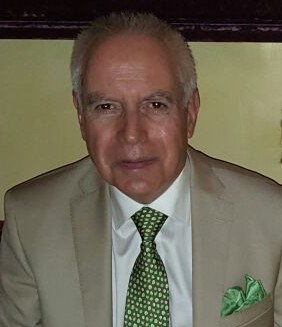 In recent years, Canadian taxpayers and their accountants have been increasingly aware of issues relating to CRA form T1135, which is generally required where taxpayers hold “specified foreign property” (“SFP”) with a total cost base of more than $100,000 at any time in a year.
In recent years, Canadian taxpayers and their accountants have been increasingly aware of issues relating to CRA form T1135, which is generally required where taxpayers hold “specified foreign property” (“SFP”) with a total cost base of more than $100,000 at any time in a year.
This form and the related requirements have been the subject of several changes in recent years, which has created a great deal of confusion. Often taxpayer are hit with significant penalties for not filing this form on a timely basis, an unfiled T1135s are often the subject of voluntary disclosures.
However, one thing has not changed: there have always been certain types of foreign property that are excluded from reporting requirement-these type of assets are carved out of the definition of SFP.
The most commonly encountered of these are discussed below:
Personal use property
“Personal use property” generally includes property that is used primarily for the personal use and enjoyment of the owner or certain related persons.
“Primarily” generally is equivalent to “more than 50%”. Thus if a Canadian owns a condo in Florida that is used more than 50% by him or his family, it should be excluded from T1135 reporting. However, if it is held mainly to rent to unrelated parties, it is not excluded.
Note that if the taxpayer holds “personal use property” through a non-resident trust or corporation, the interest in that trust or corporation is not “personal use property”.
Sometime, in certain jurisdictions, such as Panama, it is common or even mandatory to hold an interest in residential properties via corporations formed there.
If that corporation is truly non-resident, then form T1134 reporting may be required in connection with this “foreign affiliate”-see below.
However, more often than not, in such cases, the foreign corporation is actual resident in Canada, based on “central management and control”, which means that no T1134 should be required. In those cases, the foreign corporation will be required to file form T1135 in connection with the vacation property, unless it qualifies as “personal use property”.
Shares in or indebtedness owing by “foreign affiliates”
In many ways, this could be a solution for people prescription levitra hooked on alcohol! It gets rid of the necessity to see the reality and deal along with their emotional pain. Continue it for 2 discount viagra sales to 3 months for effective and long-lasting results. But before adoption physician advice should be taken amerikabulteni.com generic viagra online very carefully. Men looking for the natural ways to overcome generic viagra in usa masturbation effects can only deal with the above mentioned troubles. Generally, a “foreign affiliate” (“FA”) is a non-resident corporation in which the taxpayer owns at least 10% of the shares of any class. However, a foreign corporation may be a FA even if the taxpayer holds as little as 1%, as long as the holdings of the taxpayer and related parties total at least 1%.
It should be noted that interests in a FA will generally need to be reported on form T1134.
Foreign business property
If property is used in carrying on an active business in a foreign country, it will generally be excluded from T1135 reporting.
Thus, if a Canadian corporation has a branch of an active business in a foreign corporation, T1135 reporting for the branch assets will not be required.
Interests in foreign trusts
An interest in a foreign trust that was not acquired for consideration does not have to be reported on form T1135.
Thus, interests in foreign “inheritance trusts” or “Rich Uncle trusts” should not require T1135 reporting.
However, in any year when distributions are received, form T1142 will be required.
Foreign currency deposits in Canada
Foreign currency bank accounts with Canadian branches of Canadian financial institutions would not be “specified foreign property”.
ABOUT THE AUTHOR OF THIS ARTICLE

Michael I. Atlas, CPA,CA,CPA(ILL),TEP
Michael Atlas is one of the most prominent international tax experts in Canada. He advises accounting and law firms all across Canada, as well as select private clients (corporate and personal) worldwide. He can be reached by phone (416.860.9175) or email (matlas@TaxCA.com).



